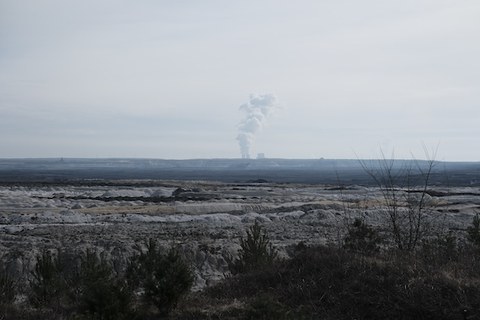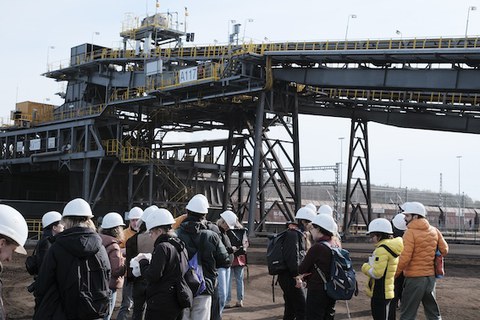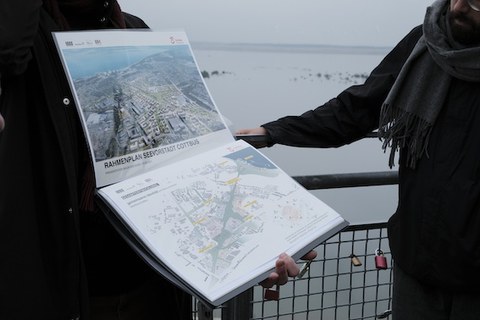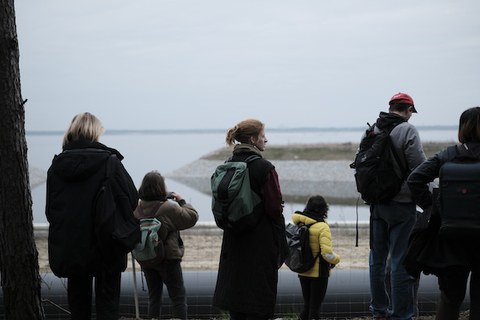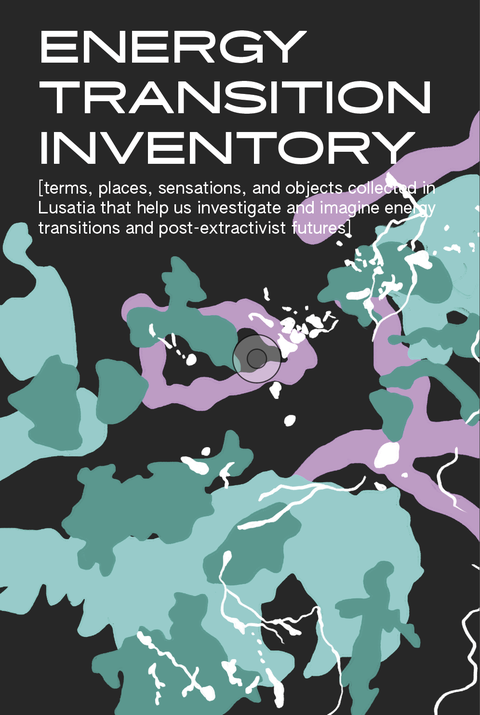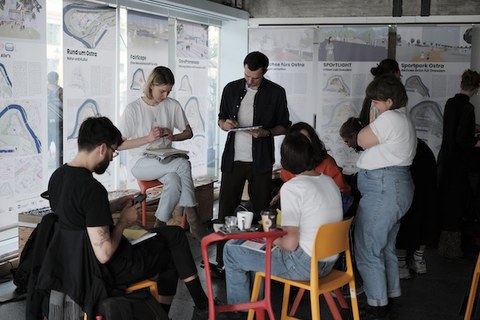Research Studio: Extractive Pasts, Sustainable Futures?
How do imaginaries of the energy transition shape our present and how can we engage with and intervene in these imaginaries through our scholarly and artistic practice?
With the transition to renewable energy taking center stage in Germany’s efforts to decarbonize, so does Lusatia, one of Germany’s largest lignite mining regions. In anticipation of the year 2038 when coal mining will be phased out—not without controversy—various actors are realigning forces for and reconfiguring their roles in Lusatia’s post-mining future. Envisioned as Germany’s green powerhouse, Lusatia will accomodate multiple research and regional development projects for solar and wind energy as well as green hydrogen production. Former coal mines turned into lakes shall boost the tourism industry and underline the new green image of the region. While visions are grand the transition process is riddled by uncertainties about how, when and by which means such a transition can be achieved. Conflicting sovereignties in the region, infrastructural monopolization, the slow pace of technological progress, unsettled communities, and a bleak landscape that will take decades to recover contest the transition imaginaries.
The research studio EXTRACTIVE PASTS, SUSTAINABLE FUTURES? convened 30 interdisciplinary researchers and artists to investigate Lusatia’s transformation as it hits the ground. By visiting mining sites, solar parks, converted lakes, energy research centers and start-ups as well as learning about Sorbian history and culture—an ethnic minority of slawic origin in the region—we got first-hand experience of the region’s conversion and the role historic legacies play in influencing future infrastructural development. We engaged with company officials, city representatives, urban planners, energy researchers and artists from the region to understand their stakes in and perspectives on the transition.
Download the research studio program and reader here.
We documented and captured energy transition sites through taking photos, recordings, sketches, notes and collecting materials. By bringing together our respective methodologies, practices and viewpoints, we developed an Energy Transition Inventory, attempting to reconcile the multiple scales of activity that converge as “the energy transition”. It is a collection of pieces that do not aim at making a whole, just as patchy and contradictory as the transition itself.
The Energy Transition Inventory proposes new provocative and productive terms, places, narratives, sensations, and objects that help us investigate and imagine the energy transition in Lusatia.
Download the research studio program and reader here.
The research studio EXTRACTIVE PASTS, SUSTAINABLE FUTURES? was organized by the Chair of Digital Cultures in collaboration with the Chair of Micro-Sociology and Techno-Social Interaction and the Department for Transformative Speculation at TU Dresden on March 11–18, 2024.
Concept: Michaela Büsse
Direction: Chair of Digital Cultures Orit Halpern
Organization: Michaela Büsse, Kristiane Fehrs, Orit Halpern, Johanna Mehl
Editors: Michaela Büsse, Kristiane Fehrs, Johanna Mehl
Design: Johanna Mehl

